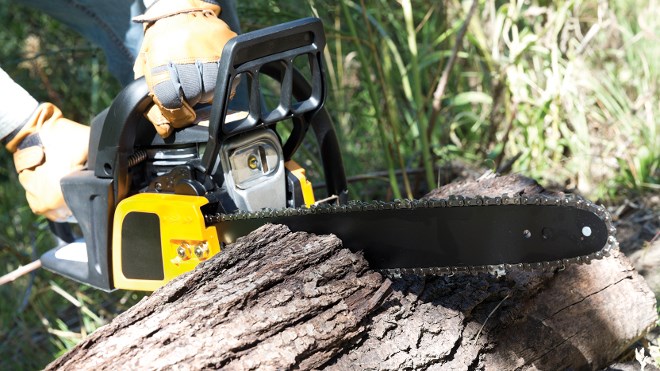If you have been told that you cannot cut down a tree in your yard, it may be because it is on the city’s right of way and is protected by the tree-removal bylaw.
Yes, the city has a tree-removal bylaw. You can find it by visiting GreaterSudbury.ca or phoning 3-1-1.
Trees provide a number of benefits and the City of Greater Sudbury strives to increase urban tree cover. A healthy residential area should have at least 25-per-cent tree canopy.
1. Trees clean the air. According to the American Forests, a U.S.-based non-profit organization, just 100 trees can remove two tons of carbon dioxide from the air every year. Researchers from the U.S. Forest Service recently found urban trees in 10 American cities removed many tons of air pollutants, including very small particulate matter (PM 2.5) that’s linked to several negative health effects in humans.
2. Trees capture and hold water. Trees slow the flow of stormwater so when it rains, more water can be evaporated back into the air or slowly released into the soil. Although most effective during light storms, urban trees are estimated to be worth billions of dollars just in terms of their collective stormwater control functions in cities like Portland, Oregon and Washington, D.C. Canada Mortgage and Housing Corporation reports that trees produce between 30-per-cent and 50-per-cent less runoff than lawns.
3. Urban trees help reduce household heating and cooling costs. They can moderate the climate around your home by keeping the temperature cooler in summer through shading and possibly warmer in winter by reducing wind.
4. Trees provide habitat and food. We want to encourage local wildlife, like birds and pollinators, because of their essential services, but edible fruit trees are also a great source of local food for our community. Local organizations can help harvest excess fruit from your yard and small orchards have been added to a number of community gardens.
5. Trees improve the look of your neighbourhood and of your property. Studies have found that people are willing to pay a premium of five per cent or more for houses with trees than ones without.
TD Economics reports that maintaining urban trees makes sense. In Toronto, for example, every dollar spent on tree maintenance returns $1.35 to $3.20 worth of benefits to residents. The bottom line is that trees are good for us, the environment and our wallets.
The tree in your front yard could belong to the city, depending on its location relative to the City’s easement and may also be protected by the tree removal bylaw. If you have questions or concerns with your street tree, please call 3-1-1.
Thanks to our EarthCare Sudbury Partners: Coalition for a Liveable Sudbury, Fruit for All and the City of Greater Sudbury for their assistance in responding to this question. EarthCare Sudbury is a network of over 180 local businesses, organizations, and agencies that are committed to helping Greater Sudbury become greener, cleaner, healthier and more sustainable. Find out more about EarthCare Sudbury, our partners and how to get involved by visiting our website at GreaterSudbury.ca/Earthcare.
Do you have a question about an environmental issue? Ask an EarthCare Expert! Submit your questions online at www.greatersudbury.ca/earthcare, then watch for this column published in the Northern Life for an “expert” response.
Join Sudbury.com+
- Messages
- Post a Listing
- Your Listings
- Your Profile
- Your Subscriptions
- Your Likes
- Your Business
- Support Local News
- Payment History
Sudbury.com+ members
Already a +member?
Not a +member?
Sign up for a Sudbury.com+ account for instant access to upcoming contests, local offers, auctions and so much more.
